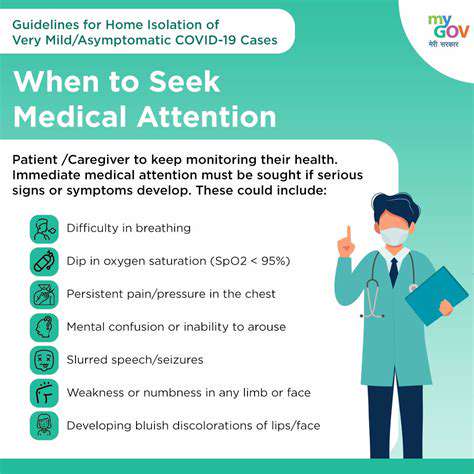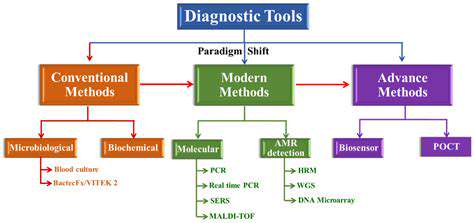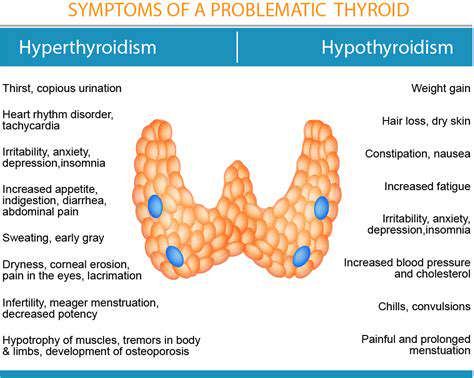Managing Migraine Prodrome Symptoms Effectively
Lifestyle Adjustments for Prevention and Symptom Mitigation
Lifestyle Adjustments for Migraine Prodr
Adopting proactive lifestyle changes can significantly impact the likelihood of experiencing a migraine and the severity of symptoms. Understanding the specific triggers that precede a migraine attack is absolutely crucial. A well-structured routine, focusing on regular sleep patterns, consistent meal times, and stress reduction techniques, can help minimize the risk of prodromal symptoms developing into a full-blown migraine. Paying attention to early warning signs, such as mood changes, food cravings, or changes in sleep patterns, can allow for timely intervention and potentially prevent the onset of a migraine.
Regular exercise and maintaining a healthy diet are also vital components of a migraine prevention strategy. Physical activity releases endorphins, which have natural pain-relieving properties. A balanced diet rich in fruits, vegetables, and lean proteins can help regulate blood sugar levels, promoting overall well-being and potentially reducing migraine frequency. Dehydration can also exacerbate migraine symptoms, so ensuring adequate hydration throughout the day is essential.
Stress Management Techniques
Chronic stress is a significant trigger for migraines, and incorporating stress-reducing techniques into your daily routine can be invaluable. Techniques like mindfulness meditation, deep breathing exercises, and yoga can help manage stress levels effectively. Even short periods of relaxation can make a noticeable difference in mitigating migraine risk.
Identifying and addressing specific stressors in your life is also key. Whether it's work-related pressure, relationship issues, or financial concerns, addressing these issues directly or seeking support from professionals can significantly reduce stress levels and consequently, migraine occurrences.
Sleep Hygiene and Regularity
Adequate and consistent sleep is crucial for overall health and plays a vital role in preventing migraine attacks. Establishing a regular sleep schedule, even on weekends, helps regulate the body's natural sleep-wake cycle. Creating a relaxing bedtime routine, such as taking a warm bath or reading, can promote better sleep quality. A dark, quiet, and cool sleep environment is absolutely essential for optimal sleep.
Addressing sleep disturbances like insomnia or sleep apnea is crucial for migraine prevention. If you're experiencing persistent sleep problems, consulting a healthcare professional can help identify underlying causes and develop effective solutions.
Dietary Considerations
Certain foods and drinks can act as migraine triggers, and identifying these through careful tracking can significantly reduce attack frequency. Keeping a detailed food diary to track potential triggers and their correlation with migraine episodes can be particularly helpful. Reducing or eliminating caffeine, alcohol, and processed foods may benefit many individuals.
Maintaining a consistent, balanced diet focused on whole foods including fruits, vegetables, and lean proteins can contribute to overall well-being and help regulate blood sugar levels, which are often linked to migraine triggers.
Environmental Factors and Triggers
Environmental factors like bright lights, strong smells, and loud noises can also trigger migraines. Identifying these triggers and making appropriate environmental adjustments can be key to minimizing attack risk. Simple measures like using noise-canceling headphones or sunglasses in bright environments can help mitigate these triggers.
Weather changes, barometric pressure fluctuations, and temperature variations can also influence migraine activity. Being mindful of these environmental factors can help anticipate potential triggers and take proactive management steps.
The Role of Early Intervention and Proactive Treatment

Early Intervention: A Foundation for Future Success
Early intervention programs are crucial for children experiencing developmental delays or disabilities. These programs provide tailored services from birth through age three. Early intervention isn't just about addressing immediate challenges; it's about building a strong foundation for lifelong learning and development. This early support can significantly impact cognitive, physical, and social-emotional growth, setting children on a path toward greater independence.
Services often include physical, occupational, and speech therapy, as well as educational support delivered in various settings. The ultimate goal is to maximize each child's potential and ensure they have necessary tools to thrive.
Identifying Developmental Delays and Disabilities
Early identification of potential developmental delays is paramount. Parents, caregivers, and pediatricians play vital roles in recognizing early signs. Timely detection can dramatically improve intervention effectiveness, enabling appropriate support when it matters most.
The Impact of Intervention on Long-Term Outcomes
Research consistently shows strong correlations between early intervention and positive long-term outcomes. Children in these programs often show significant improvements in cognitive skills, language development, and social-emotional well-being. These gains frequently translate to better academic performance, improved social skills, and greater adult independence.
Earlier intervention leads to greater potential for positive change and long-term success. These programs build foundations for lifelong learning and personal growth.
The Importance of Parental Involvement in Early Intervention
Parental involvement is fundamental to intervention success. As primary caregivers, parents play critical roles in supporting development. Active participation in therapy sessions, educational activities, and ongoing professional communication ensures a consistent, supportive environment.
Funding and Access to Early Intervention Services
Ensuring equitable access to services for all families is critical. Funding must be adequate and accessible regardless of socioeconomic status or location. Reliable funding combined with effective service delivery can dramatically enhance program reach and impact across diverse communities.
Access to quality early intervention should be universal. This requires concerted efforts from policymakers, healthcare providers, and community organizations to guarantee equitable access for all children.











